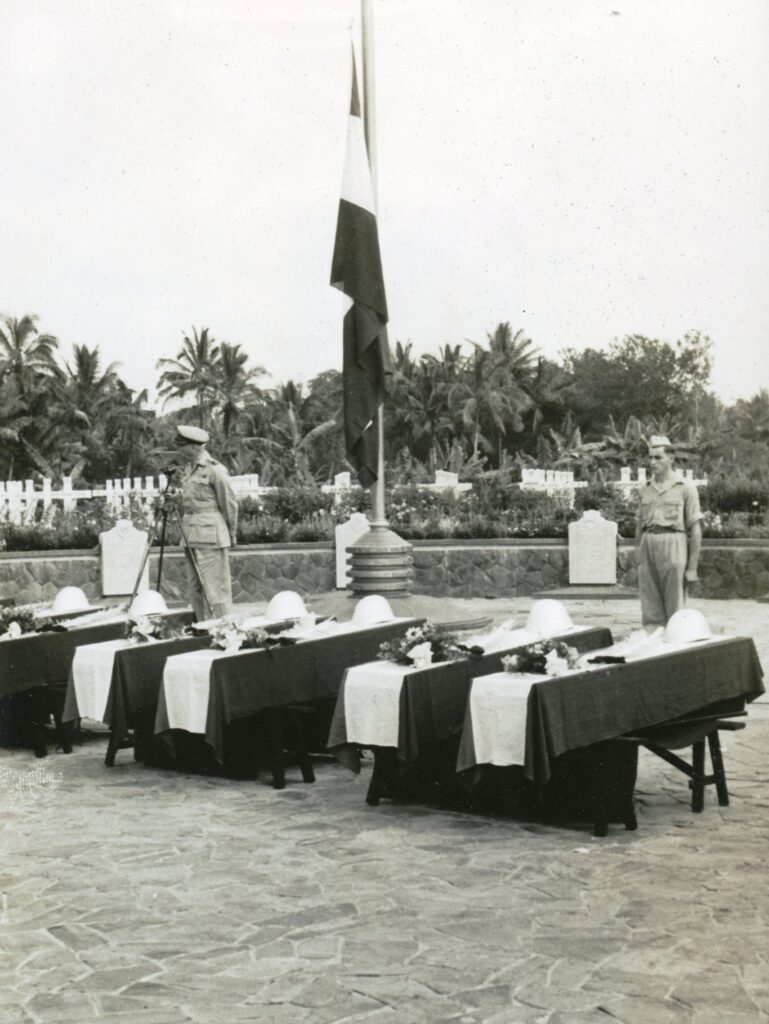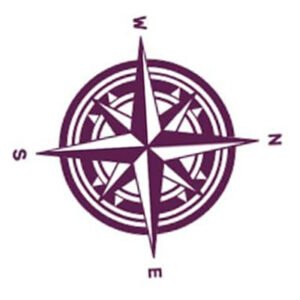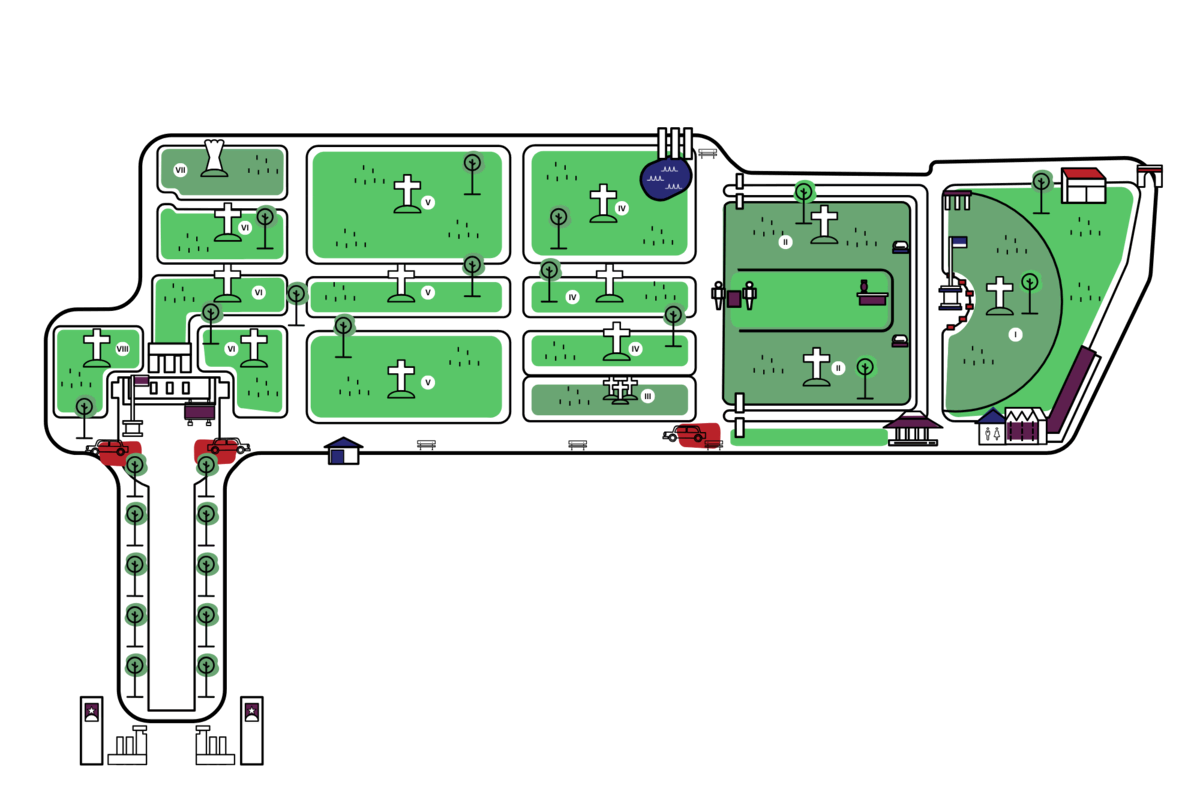Inaugurated on 7 March 1948, Pandu war cemetery is a place of remembrance located within the grounds of Pandu public cemetery in Bandung. Visitors can access the site by going through the main entrance of the public cemetery and following a 200-metre path that leads to the war cemetery’s gate. Pandu war cemetery commemorates more than 4,000 war victims, including civilians from nearby internment camps and military personnel from the Royal Netherlands East Indies Army (KNIL). It stands as a reminder of those who died during the Japanese occupation and the difficult years that followed the end of the Second World War in 1945. As visitors pass through the wrought iron gates, they are welcomed by a quiet avenue lined with pine trees, guiding them towards the cemetery’s central monuments.
Video: How to get to Ereveld Pandu

Pandu war cemetery’s history is deeply intertwined with significant events of World War II and the post-world war period. The cemetery’s inauguration on 7 March 1948 coincided with the sixth anniversary of the surrender of the Tjiater Pass (Tjiaterstelling) and the fall of the Dutch East Indies to Japan. This date was chosen to respect the memory of those who perished in the defense of the Tjiater Pass, including the 14 military personnel whose remains were reburied at the cemetery during the inauguration ceremony.
Ereveld Pandu’s layout is symbolic; when viewed from above, the cemetery is shaped like a sword, a powerful symbol facing the Tangkuban Perahu mountain. This design reflects the nearby Battle of the Tjiater Pass, which occurred at the mountain’s foothills, further emphasising the site’s historical significance.
The cemetery serves as the final resting place for war victims from diverse backgrounds, including many civillians and KNIL soldiers from Bandung and surrounding areas.
Over time, the cemetery became a final resting place for not only those who died in the area but also those who died elsewhere in the archipelago. Initially, the Graves Registration Unit of the KNIL developed 22 war cemeteries across Indonesia. However, in a significant consolidation effort during the 1960s, at the request of the Indonesian government, these war cemeteries were merged into the current seven war cemeteries in Java, including Pandu.
This cemetery, in particular, has seen the reburial of war victims from Muntok (1960), Palembang (1967), and Makassar (1968).


This tomb is dedicated to the unknown soldiers who lost their lives at war. At the top of this symbolic tomb, there is a sword, helmet, and a wreath of palm leaves. This monument serves as a tribute to those whose identities remain unknown, yet whose sacrifice is deeply honoured.


The General Monument, designed by architect A.W. Gmelig Meyling, is an eight-pillar structure that once stood within a small pond. This monument commemorates those who lost their lives in the pursuit of freedom and truth, serving as a central place of remembrance for all who perished.


This tomb is dedicated to the unknown civilians who perished during the war. The monument features a torch and a wreath of palm leaves, symbolizing remembrance and respect for the civilian victims whose identities remain unknown but whose suffering and sacrifices are acknowledged.


The KNIL Monument, unveiled on 15 August 15 1991, is a replica of the monument at the “Bronbeek” estate which serves as an elderly home for former military in Arnhem. Designed by Thérèse de Groot-Haider, this monument honours the soldiers of the Royal Dutch East Indies Army who served and sacrificed during the turbulent times of war.


This flagpole commemorates various battle sites, with their names inscribed around its base. A granite circle surrounds the flagpole, featuring the 12 zodiac signs and symbols of the four largest world religions, representing the diverse backgrounds of those buried here.


The Padalarang Monument is composed of five stone pillars and a book scroll, commemorating the members of a music group who died in a plane crash while on the way to perform and entertain soldiers. This monument highlights the broader spectrum of war casualties, honouring not only military personnel but also those who contributed to the war effort in supportive roles.


Surrounding the Flag Monument are 11 memorial stones dedicated to the victims of the Tjiater and Subang Kalidjati defense sites. Each stone is engraved with the emblem of the corresponding military unit, providing a specific tribute to the soldiers who fought and died in these battles. These stones stand as a lasting memorial to the bravery and resilience of these units.


The General Memorial is dedicated to all those who sacrificed themselves during the war but are not specifically mentioned or buried in the cemetery. This memorial serves as a respectful acknowledgment of the many individuals who paid the ultimate price, ensuring their memory is honoured and their sacrifices are not forgotten.


 Main Gate
Main Gate
 Lambang Dinas Pemakaman KNIL
Lambang Dinas Pemakaman KNIL
 Lambang Dinas Pemakaman KNIL
Lambang Dinas Pemakaman KNIL
 Parking Area
Parking Area
 Parking Area
Parking Area
 Parking Area
Parking Area
 Middle Post & List of War Victims
Middle Post & List of War Victims
 Pendopo, Information Centre & Guest Book
Pendopo, Information Centre & Guest Book
 Pendopo, Information Centre & Guest Book
Pendopo, Information Centre & Guest Book
 Toilet
Toilet
 Ereveld Pandu Manager's Office
Ereveld Pandu Manager's Office

Grave Sign Workshop
 Flagpole
Flagpole
 Symbolic Tomb for the Unknown Soldier
Symbolic Tomb for the Unknown Soldier
 Symbolic Tomb for the Unknown Civilian
Symbolic Tomb for the Unknown Civilian
 General Monument
General Monument
 Fish Pond
Fish Pond
 Welcoming Pillar to Section II
Welcoming Pillar to Section II
 KNIL Monument
KNIL Monument

Symbolic Tomb & Vase

Tjiater Monument Flagpole
 Memorial for the Battle of Kalidjati & Perlintasan Tjiater
Memorial for the Battle of Kalidjati & Perlintasan Tjiater
 General Memorial
General Memorial
General Visits:
During visiting hours, Pandu war cemetery welcomes individuals and small groups to explore the grounds at their own pace. Visitors are invited to take time for quiet reflection on the histories and personal stories commemorated here. The peaceful pathways and memorials offer a contemplative space for anyone wishing to pay their respects.
Group Visitation and Tours:
For those interested in a more structured visit or group tours, it’s important to note the staff’s working hours. During these times, we may be able to accommodate group visits with a guided tour led by the war cemetery manager (with prior notice and confirmed availability). These tours offer a deeper insight into the significance of the site and the stories of those commemorated here, making them ideal for educational groups, organisations, or anyone looking to understand more about this historical site.
Guided Tours with Partner Organisations:
For visitors whose schedules do not align with our working hours, or who prefer a professional guided experience, we have partnered with reputable local guides in Bandung. Please let us know if you’re interested and we will redirect you to our partners.
If you’re interested in learning about the types of visits available at the war cemetery, please visit our Visit Us page.
Media coverage, research, flying drones, professional photography sessions and conducting events within the war cenetery requires permission. We appreciate your understanding and cooperation in maintaining the sanctity of this solemn space.
Every day, 7:00 AM to 5:00 PM
Monday to Thursday, 7:00 AM to 2:00 PM
Friday, 7:00 AM to 11:30 AM
Saturday, 7:00 AM to 1:00 PM
Webdeveloper.id menyediakan jasa pembuatan website profesional untuk bisnis Anda yang mencakup desain modern dan kekinian. Dengan pengalaman lebih dari 1500+ project dan portofolio yang kuat, kami memastikan situs web Anda akan menonjol dan memenuhi kebutuhan bisnis Anda.